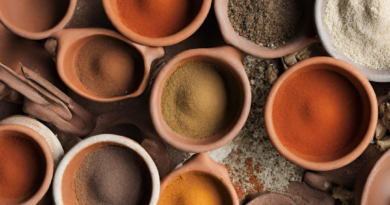Are there health benefits to clay cooking?
Cooking is not just a means of preparing food; it’s a journey that involves making choices about ingredients, techniques, and cookware. In this culinary journey, clay cooking stands out as a method that not only enhances the flavor of dishes but also offers potential health benefits. In this article, we’ll explore the ways in which clay cooking can contribute to your overall well-being and provide a natural approach to culinary wellness.
1. Reduced Oil Usage:
One of the notable health benefits of clay cooking is its ability to reduce the need for added fats and oils in recipes. Clay pots, with their natural moisture retention and even heat distribution, allow you to achieve desirable cooking results with less fat. This means that you can enjoy flavorful, moist dishes without the excessive calories and saturated fats often associated with frying or sautéing in oil.
2. Preservation of Nutrients:
Clay pots are known for their gentle and even cooking. The sealed environment created by the clay pot’s lid and the slow-cooking process helps retain the essential nutrients in your ingredients. Unlike some cooking methods that can cause nutrient loss due to high temperatures or extended cooking times, clay cooking helps preserve the vitamins and minerals in your food, resulting in healthier meals.
3. Low-Heat Cooking:
Clay pots are excellent at maintaining low to medium heat levels consistently. This is particularly beneficial when preparing delicate dishes, such as vegetables or fish, where high-heat cooking methods can lead to overcooking and nutrient loss. The slow and even heat of clay pots allows you to cook these ingredients gently, preserving their texture and nutritional value.
4. Alkaline Cooking:
Clay is naturally alkaline, and when you cook with clay pots, they can impart a slight alkalinity to your food. Many health experts advocate for an alkaline diet, believing that it can help balance the body’s pH levels and promote overall well-being. While the alkaline effect of clay cooking is subtle, it contributes to the overall health-conscious nature of this cooking method.
5. Flavor Without Excess Sodium:
In clay cooking, the natural moisture retention and flavor-enhancing properties of clay allow you to use fewer seasonings, including salt. This is advantageous for individuals who are concerned about sodium intake. By relying on the clay pot to enhance flavors and moisture, you can reduce your reliance on salt as a flavor enhancer, promoting heart health and lower blood pressure.
6. Enhanced Digestibility:
The slow, even cooking of clay pots contributes to the breakdown of complex carbohydrates and proteins, making them easier to digest. This can be particularly beneficial for individuals with sensitive digestive systems or those who experience discomfort from certain foods. Clay cooking can render foods more digestible and gentle on the stomach.
7. Reduced Risk of Overcooking:
Clay pots’ ability to maintain a consistent cooking temperature reduces the risk of overcooking or burning food. Overcooking can lead to the formation of harmful compounds, such as acrylamide in starchy foods, which have been associated with health risks. Clay cooking helps you avoid these pitfalls and ensures that your dishes are cooked to perfection without any undesirable byproducts.
Conclusion: A Holistic Approach to Cooking and Wellness
Clay cooking is more than a culinary technique; it’s a holistic approach to preparing nourishing, flavorful meals while promoting overall wellness. From reducing the need for excess fats and sodium to preserving essential nutrients and promoting gentle digestion, the health benefits of clay cooking are both subtle and significant. When you choose to cook with clay, you not only savor the rich flavors of your ingredients but also embrace a natural and health-conscious approach to culinary wellness.



